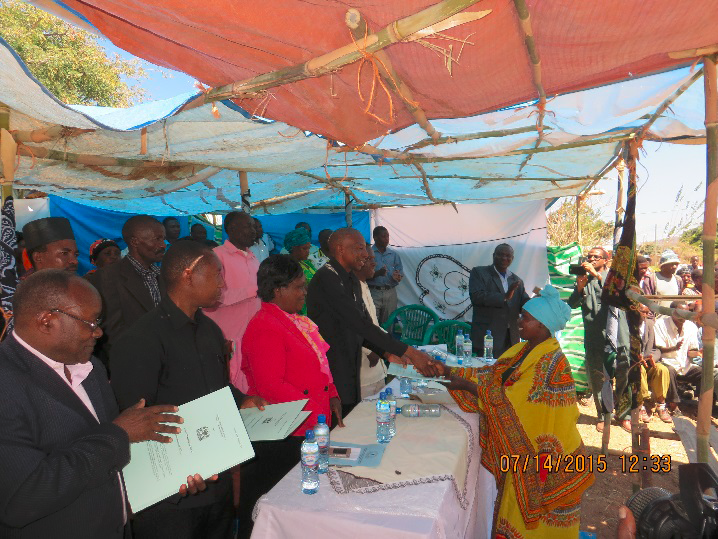
On July 14, 2015, the Mobile Application to Secure Tenure (MAST) pilot project reached a major milestone by holding a Delivery Ceremony for villagers in Ilalasimba, Tanzania. The Delivery Ceremony, which was attended by villagers, national officials from the Ministry of Lands, Housing and Human Settlements Development, district government officials from Iringa District, USAID staff, MAST local implementing partners CARE TZ and TAGRODE and ERC staff, was a celebration of what villagers, working with the District Land Office and USAID, had accomplished: the successful mapping, registration and validation of land rights for 914 parcels in the rural village.
The MAST project was designed to test the hypothesis that land rights could be successfully crowdsourced by local people. Beginning in March and running through late June, the MAST project trained local women and men in the terms and conditions of Tanzania’s land laws, provided specific training on the rights women hold under these laws, trained 8 local villagers to use the MAST mobile application to capture geospatial coordinates and map village parcel boundaries, verify demographic and tenure information with parcel holders and neighbors, validate the data captured in the field at the District Land Office, and then print and verify formal documentation of land rights: the CCROs. The Delivery Ceremony marked the completion of this effort.
Based on our experiences in the field during the first phase of the MAST project we are able to share the following lessons:
- Outreach at the hamlet level was an important element of our engagement and allowed us to engage more villagers to build buy-in and support for the effort;
- An expanded focus on women’s rights to land was necessary to address social norms;
- Creating a participatory approach that built local knowledge and skills was a key element of the success of the project; and
- Strong collaboration between all stakeholders and especially between the District and National level land offices, the MAST project and village leadership was also extremely helpful in maintaining project timelines and in overcoming technical glitches.

